Green Climate Fund cash pledge to secure Pacific support for climate summit bid
Australia will rejoin the UN’s Green Climate Fund as it looks to secure the support of Pacific nations for its bid to host the world’s biggest climate summit.
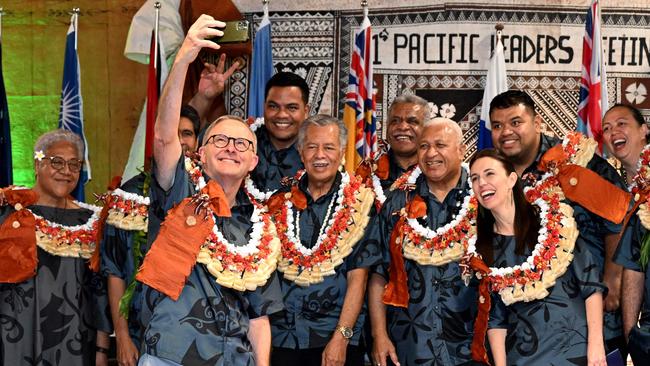
Anthony Albanese is moving to lock in the support of Pacific nations for Australia’s bid to host the world’s biggest climate summit in 2026, with a commitment to resume funding for the UN’s controversial Green Climate Fund.
Five years after former Liberal prime minister Scott Morrison declared he would no longer “tip money“ into the GCF at the behest of international agencies, Foreign Minister Penny Wong revealed Australia would resume support for the fund with a “modest contribution” before the end of the year.
The move comes ahead of the Pacific Islands Forum in the Cook Islands next month, where the Prime Minister will face renewed calls from regional counterparts for Australia to ban new fossil fuel projects.
The region’s leaders are highly critical of Australia’s $245bn-a-year coal and gas sectors, with a group of Pacific elders urging regional leaders in recent weeks to withhold support for Australia’s bid to host the COP31 climate summit until it stops expanding fossil fuel extraction.
The announcement that Australia would rejoin the fund came on the eve of its annual “high-level pledging conference” in Germany, and follows a $3.2bn commitment by Britain’s Prime Minister Rishi Sunak, and a $1.6bn pledge by US President Joe Biden.
“We have taken on board feedback from our partners in the Pacific on the best ways to direct our climate finance efforts and ensure all elements deliver for Pacific priorities,” Senator Wong‘s spokeswoman said.
She said the $US17bn fund was the “most prominent global climate finance” vehicle available, and Australia would “work with partners to improve the GCF’s effectiveness”. The move follows multiple reports criticising the GCF’s investment strategy and management of projects, and comes amid growing international consensus that private-sector investment is the key to driving down emissions.
Climate Change Minister Chris Bowen announced after Labor’s election win last year that Australia would seek to host the 2026 UN climate conference with Pacific nations, to “restore Australia’s reputation and increase international engagement on climate change and energy”.
But the government is yet to receive firm commitments of support from Pacific nations, amid scepticism within the region over Australia’s level commitment to addressing climate change.
The Pacific Elders Voice, which includes four former Pacific leaders, said in a newspaper advertisement that Australia’s bid to host COP31 should not receive the region’s backing unless Australia stopped “doing the very thing driving the climate crisis”.
“We have been clear that standing shoulder to shoulder with us must mean more than expecting to co-host a UN climate change conference in 2026 with us,” the leaders said. “Australia has ignored our pleas for years. Why then must Pacific leaders be in such a hurry to show support for COP31? What is the rush?”
Vanuatu said last year that Pacific support for Australia’s COP31 bid should be conditional on it ending fossil-fuel subsidies, while the left-wing Australia Institute said the government’s push to host the conference was an attempt to “greenwash” fossil-fuel project approvals.
The GCF was set up in 2010 following the Copenhagen climate summit, in a deal between wealthy and poor countries that would underpin the 2015 Paris agreement. The Abbott and Turnbull government contributed $200m to the fund from 2015-18.
But Mr Morrison, who said Australia would meet its Paris emissions-reduction targets “in a canter”, announced in 2018 that Australia would no longer ”tip money into that big climate fund”.
“I’m not going to spend money on global climate conferences and all that nonsense,” Mr Morrison said, adding that Australia would not be “pulled around by the nose by all these international agencies”.
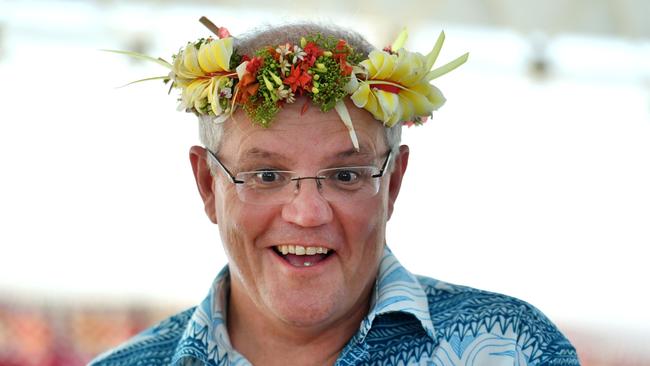
The lead author of an independent review of the fund this year found it had an “underdeveloped” approach to managing project risks, and that its investments lacked coherence.
Another report, by the Lowy Institute, found the GCF played an important role in supporting climate action in developing countries, but the fund lacked “strategic clarity”. It said the fund should slash red tape and focus more on supporting the world’s most climate-vulnerable countries, rather than high-emitting developing countries.
Lowy Institute researcher Georgia Hammersley said Australia’s decision to recommit to the fund showed Australia was trying to rebuild its climate credentials. “I think that even a modest amount … is still a good step forward,” she said. “But that isn‘t to say that Australia doesn’t need to do a lot more particularly in terms of domestic climate policies, to support its relationship with the Pacific.”
Investor Group on Climate Change policy director Erwin Jackson said the GCF was “small change” from an investor’s point of view, but “it’s obviously very important diplomatically”.
“It's a key commitment that developed countries made and living up to those commitments is important if you want to have credibility internationally,” Mr Jackson said. “But the real challenge is how to unlock private-sector investment in adaptation and zero-carbon transition in emerging markets – because that’s where the real money will flow.”
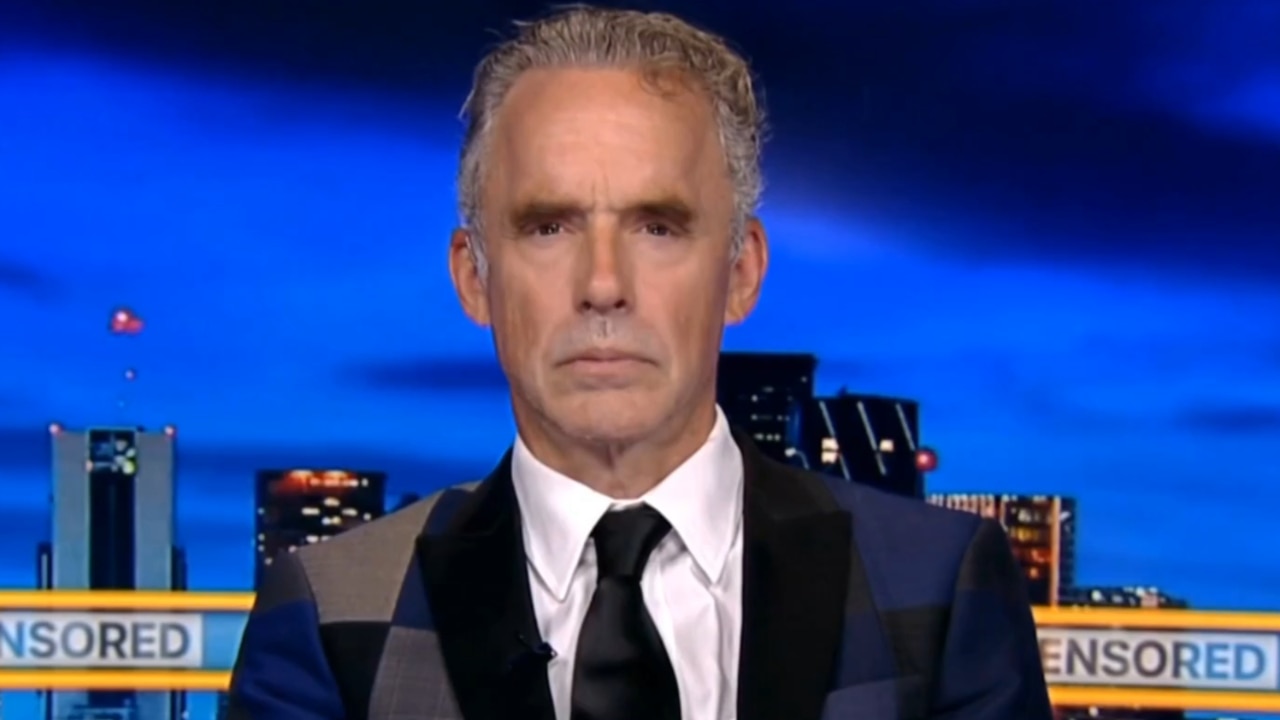
Opposition foreign affairs spokesman Simon Birmingham said the GCF’s “flaws and weaknesses” were broadly acknowledged, including by many of the nations most at risk from climate change.
“A key test of rejoining will be whether Australia is able to use its membership to improve the focus and outcomes of the fund, especially for the benefit of our regional partners in the Pacific,” Senator Birmingham said.
He said the government also needed to ensure the promised funds did not come at the expense of direct climate support for the Pacific, which the Coalition initiated with $700m in finance.
The commitment to rejoin the fund comes as the government works on its next big climate commitment – a 2035 emissions target. It is required to announce the new target by March 2025, increasing its ambition from the current 43 per cent cut on 2005 emission levels by 2030.
The Albanese government has moved to boost direct climate finance to the region by $150m over the next four years, and is helping Pacific nations to access climate financing from major multilateral lenders. It has also announced an Australia-Pacific climate infrastructure scheme to support energy efficiency investments across the region.


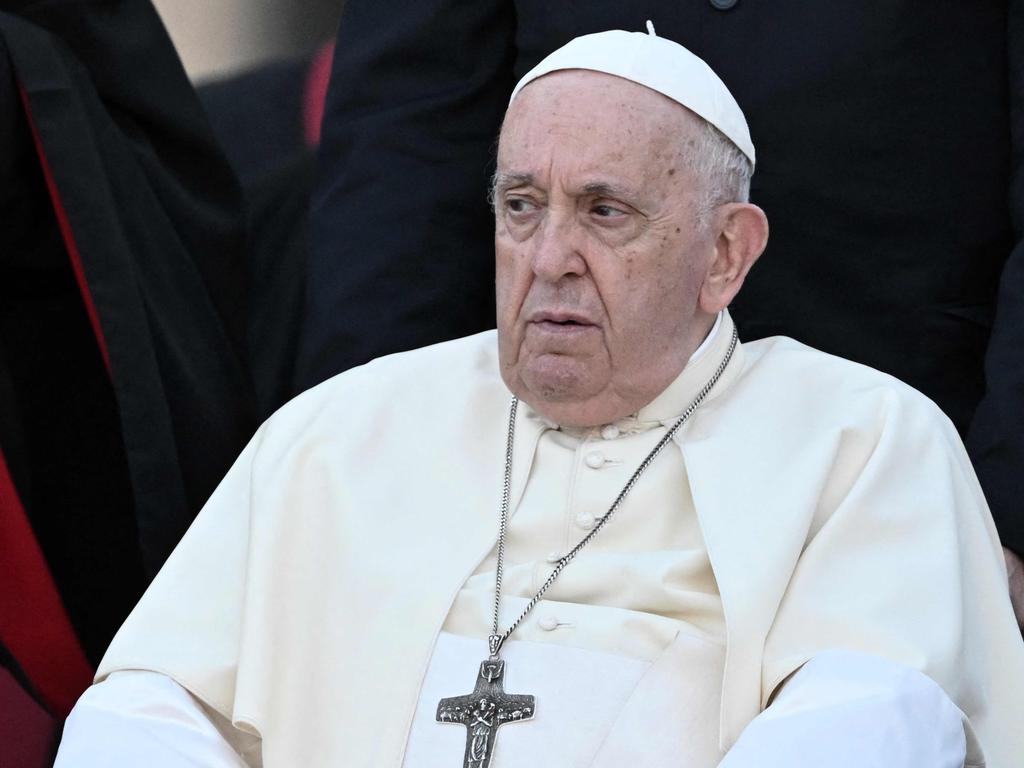
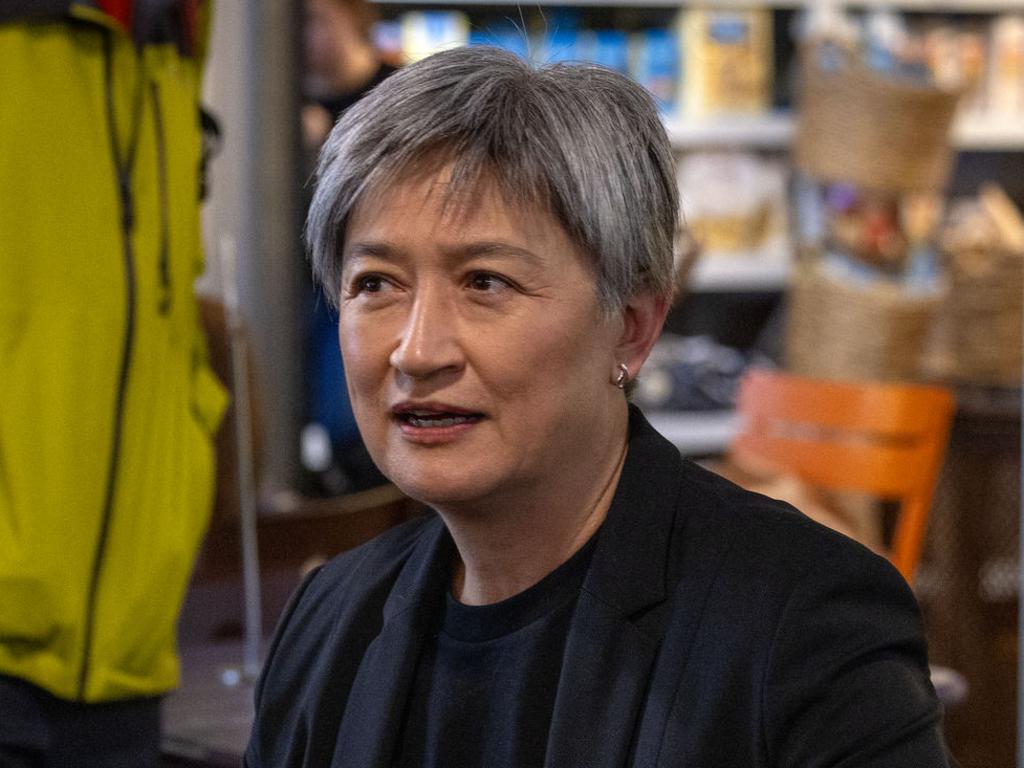




To join the conversation, please log in. Don't have an account? Register
Join the conversation, you are commenting as Logout